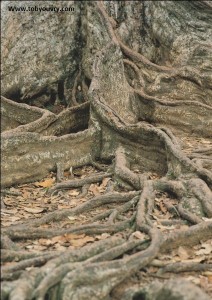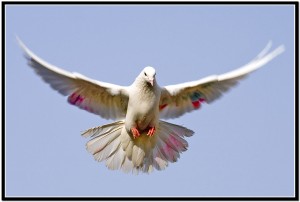 The first of the five enlightened powers that I outline in my meditation technique “The Five enlightened Powers” is the power of embodiment. This involves, quoting from my previous article on the subject:
The first of the five enlightened powers that I outline in my meditation technique “The Five enlightened Powers” is the power of embodiment. This involves, quoting from my previous article on the subject:
“Remembering that you are, in essence a spark of Universal spirit experiencing (temporarily) a physically embodied life on Earth as a human. Whatever situation you find yourself in, grounding your awareness in your true identity and not getting caught up in your small or egoic identity is the power of embodiment. Wherever you are, remember WHO you are!”
A question that we may then ask ourselves is “So then what is it actually like to experience ourself as such a spark of Universal Spirit? What qualities and emotions would we experience?” In this article I intend to highlight two specific qualities and perspectives that we can seek to bring into our daily life that will enable us to function more authentically as a divine spark amidst the push and pull of our daily lives. These two qualities are detached-compassion, and divine playfulness.
Detached-compassion
Detachment and compassion are qualities that often we think of as being separate because they appear to exclude each other. We think that when you are detached you are disconnected from others, and so cannot feel deep compassion for them. Likewise if we are truly being compassionate we cannot be detached because that would mean disconnecting from our feeling nature, which is where our compassion is located.
However, viewed from the perspective of our spiritual being, it is perfectly possible to bring deep compassion together with as sense of detached, witnessing observation. This is because from the perspective of spirit:
- We can be detached from any situation because we are always viewing things from the “big picture” perspective; nothing is truly personal in the egotistic sense of the word.
- At the same time we feel totally close and intimate with all living beings because we realize that on the essence level we all share the same common identity. Ultimately we are all one being viewing the world from billions of pairs of different eyes!
So, from the perspective of our spiritual being we experience our life as impersonally-personal, as deeply involved and at the same time not involved, as passionate at the same time as being totally even minded.
The main take away from this is that if you practice bringing detached compassion together simultaneously in life situations, gradually improving your ability to do so, then you will consistently increase your experience of what it is like to be a spiritual being embodied in a physical body.
Divine Playfulness
One of the fundamental qualities of spirit is playfulness and a corresponding sense of humor. From its perspective the whole process of creating and evolving a universe is done as a type of game, a way of creatively expressing itself and its potential.
Consequently, if you want to increase the level of spirit in your daily life then entering into your daily tasks in the spirit of divine playfulness is a great practice to have.
Most of the time we tend to get a little too serious about things and as a result allow our life to become unnecessarily stressful and unhappy. Thinking about the challenges in your day as playful games and puzzles set you by the universe and your own spiritual being in order to help you evolve and grow is a technique that both relieves stress and enhances the deeply felt spiritual nature of your human experience.
One to Five Minute Meditation to integrate Playfulness and Detached Compassion into Your Daily Life
Step 1: Mentally select a particular life situation/challenge that you wish to work on in the meditation. One of the characteristics of meditating with the Five Enlightened Powers technique is that you are always trying to work directly with a practical “real time” situation in your life. It should never be allowed to become totally abstract.
Step 2: Recollect your understanding of detached compassion. Open your heart to the feelings that you are experiencing and the other people that are involved AT THE SAME TIME AS mentally taking a step back and seeing what is happening from the big picture perspective. Experiment and try to feel both empathic compassion and witnessing observance SIMULTANEOUSLY. Breathe with this combined feeling experience for a while.
Step 3: Introduce playful humor to your perspective of the challenge. Think of the challenge as a game that you as a spiritual being are being set by the Universe to stretch and improve yourself as a human being. Stay with this perspective and the experiences it gives rise to for as long as you wish.
If you do this brief exercise a few times over the next week or so you will find that compassionate detachment and divine playfulness will become a real experience for you in your daily life that can help you to gain an authentic experience of what it is like to be a spiritual being appearing as a physical body!
© Toby Ouvry 2011, you are welcome to use or share this article, but you must seek Toby’s permission first. Contact info@tobyouvry.com






